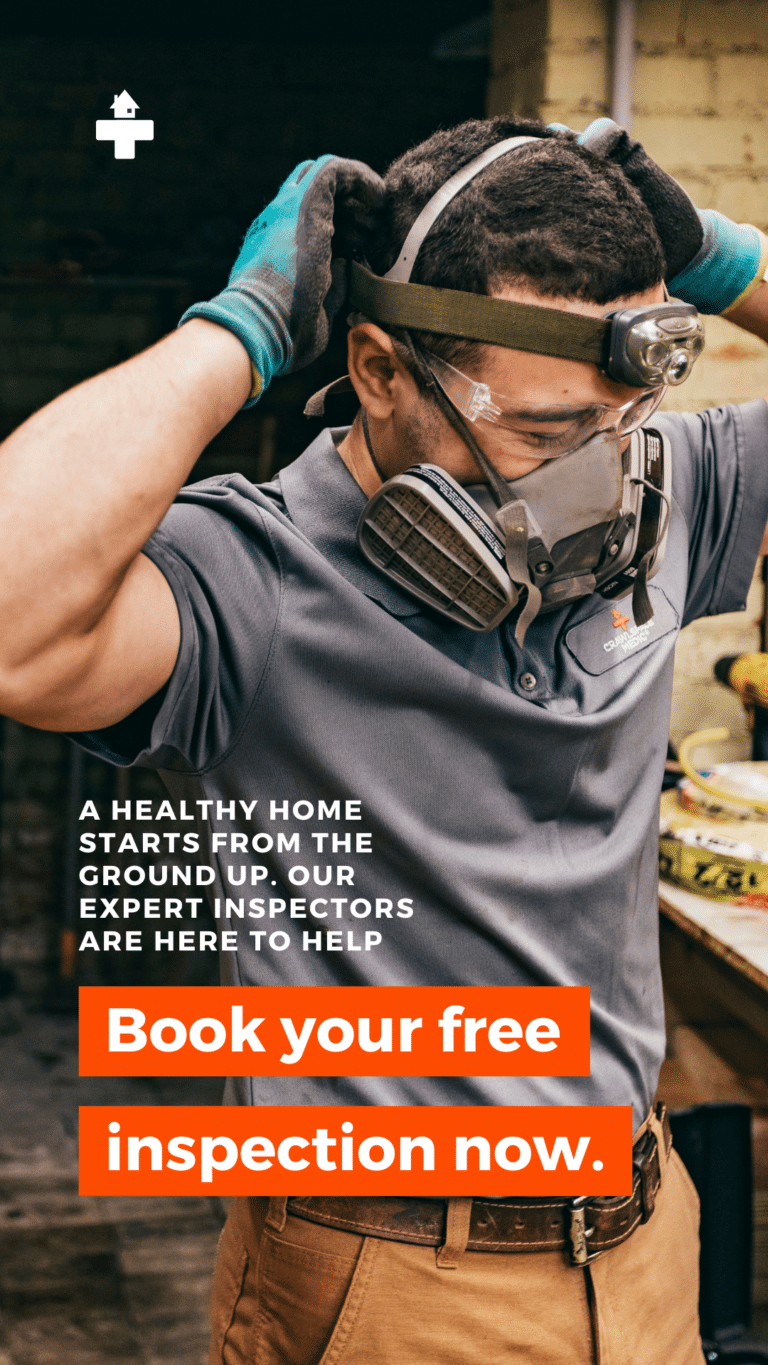Roughly 1 in 50 insured homes make a claim due to water damage or freezing each year.
Almost all homes have multiple pipes throughout. Various systems involve the transfer of water, but in cold conditions water can be susceptible to freezing. Frozen pipes in your home can lead to a range of problems, so it’s important to know what you can do to avoid this.
For some of the best methods of preventing pipes in the crawl space under your home from freezing, keep reading.
What Problems Can Frozen Pipes Create?
Water can have quite large reactions to temperature changes. The freezing temperature of water is 32°F (0°C or 273.15 K), and when it freezes water can expand by up to 10%. The outside temperature generally needs to be lower than this to freeze a pipe, depending on the measures in place within your home.
When water freezes in a pipe it will create an increase in pressure that may cause the pipe to burst, resulting in a leak. A pipe can burst in different spots – sometimes the weakest section of the pipe, sometimes the spot with the most ice, etc.
Frozen pipes and leaks can lead to a whole host of problems, such as mold or structural damage.
How to Keep Water Pipes in a Crawl Space From Freezing
Knowing what to do about frozen pipes is ideal, but preventing pipes from freezing in the first place is the best way to avoid these issues. This means that you should take whatever measure you can to ensure the cold conditions of winter don’t lead to your pipes freezing.
Insulate Your Crawl Space
People often don’t pay much attention to the crawl space beneath their home and it can get neglected. There are usually multiple pipes in a crawl space, and they will be exposed to the cold air down there.
In the winter these pipes will experience some very cold temperatures, so insulating your crawl space is one of the best ways to avoid frozen pipes. This may come at a bit of a cost, but it’s more than worth it if it prevents your pipes from freezing.
Turn Off Water to Outdoor Taps
In the winter, you’ll likely use your outdoor taps far less, if at all. Somewhere in your home, you’ll find the shut-off valve. It’s usually in the basement or near your water meter.
After shutting it off, turn on the outdoor taps so that any water in the pipes will drain away. You can then leave the pipes empty over the winter, so there won’t be any water in them to freeze.
Cover Exposed Pipes
Even with the crawl space itself, insulated, temperatures can still get very low. You can improve the protection of your pipes by adding insulation to them. Foam insulation is fairly affordable – you just need to ensure the width matches your pipes.
You might also have exposed pipes in your garage, so doing the same thing here too will help too.
Leave Faucets to Drip
The main reason that pipes burst in the cold is because of trapped pressure. Allowing faucets to drip will help reduce the pressure in your pipes, therefore lowering the chances of a burst occurring.
Keep the House Warm
Pipes will freeze because they are too cold, so maintaining a warm house is a very effective way to prevent that from happening. Some people will even keep their heating on when they’re not home because of this. While this may work, it will also increase your energy bills, so just keep that in mind.
Leave Cabinet Doors Open
Certain cabinets in your bathroom and kitchen will probably have pipes going through them. If you leave these doors open, the ambient air in your house will circulate around the pipes better, which should help keep them warm.
When doing this, just be cautious with any harmful cleaners or other chemicals, especially if you have children in the house.
Shut Garage Doors
Leaving any doors open will let cold air into your home. Your garage will more than likely have some pipes running through it, so you want to maintain the temperature in there to stop them from getting too cold.
Use Heat Cables
Heat cables or heat tape can be applied to any pipes as you see fit. They can plug into a power source to generate heat, preventing frozen pipes. You can use these alone, or apply them along with insulation to help even more.
Seal Off Air Leaks
Any openings in your home will reduce the temperature. Gaps around windows or doors should be properly sealed. Your crawl space may have vents and windows, so check these too to ensure there are no gaps, and fill any that you find.
Keep Your Thermostat at a Constant Temperature
During winter you’re likely to experience higher heating bills. Turning your heating off at night will help save on these bills, but it might also let the temperature of your house drop low enough for your pipes to freeze.
If you’re going away from home, this could be an issue. Leaving your thermostat on 55°F should be enough to keep your pipes from freezing.
Do this with ease by installing a smart thermometer today. Smart thermometers make it easy to monitor your home, even if you are away from it.
Dealing With Frozen Pipes
You can make use of any or all of the techniques above to prevent your pipes from freezing. The more efficient you are, the less likely you are to end up with frozen pipes.
Crawl Space Medic provides various services to help deal with issues in crawl spaces, so if you do end up with frozen pipes, we’ve got you covered. We offer crawl space inspections, structural repair, water damage repair, and more. Click here to book a free inspection from one of our professional technicians.

